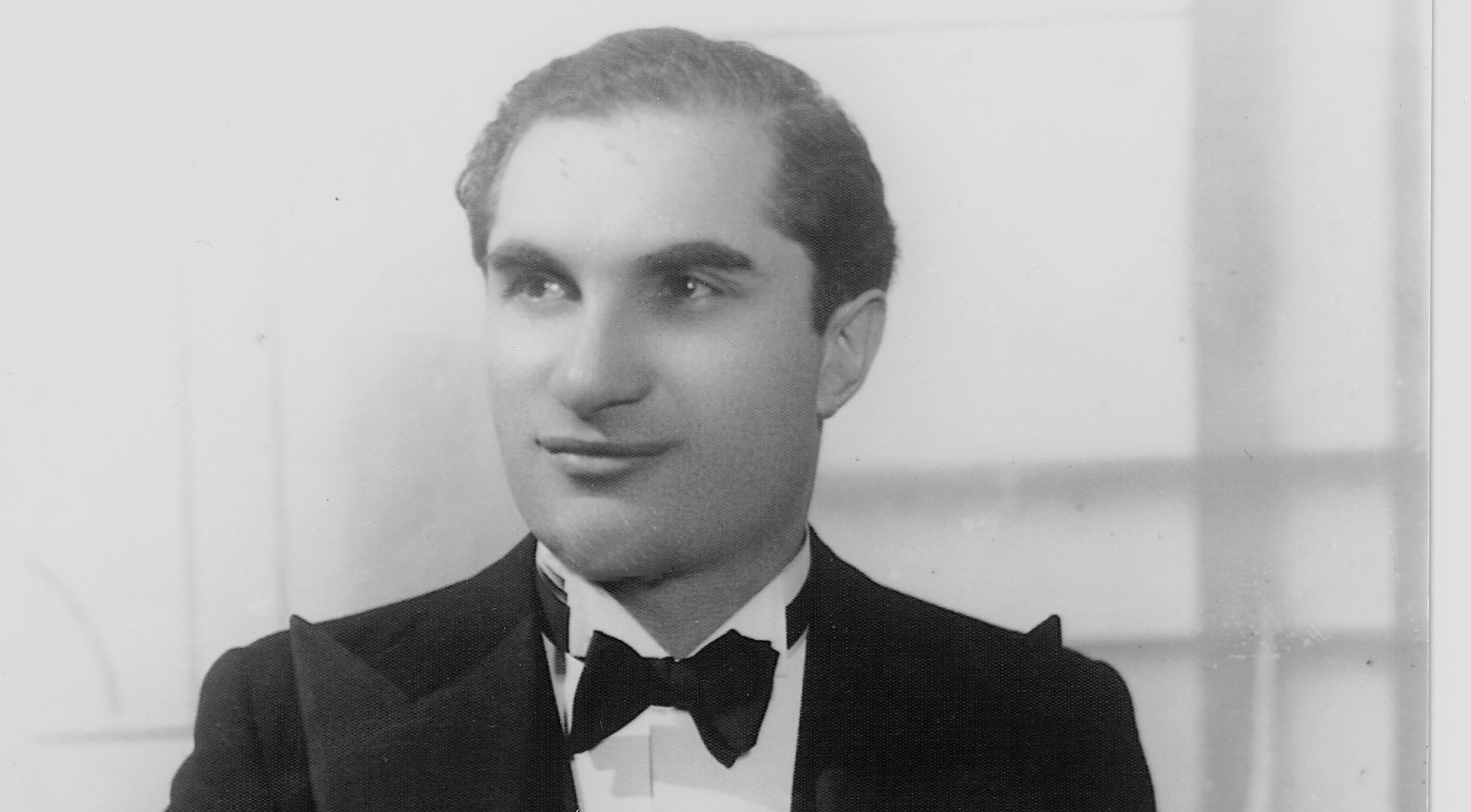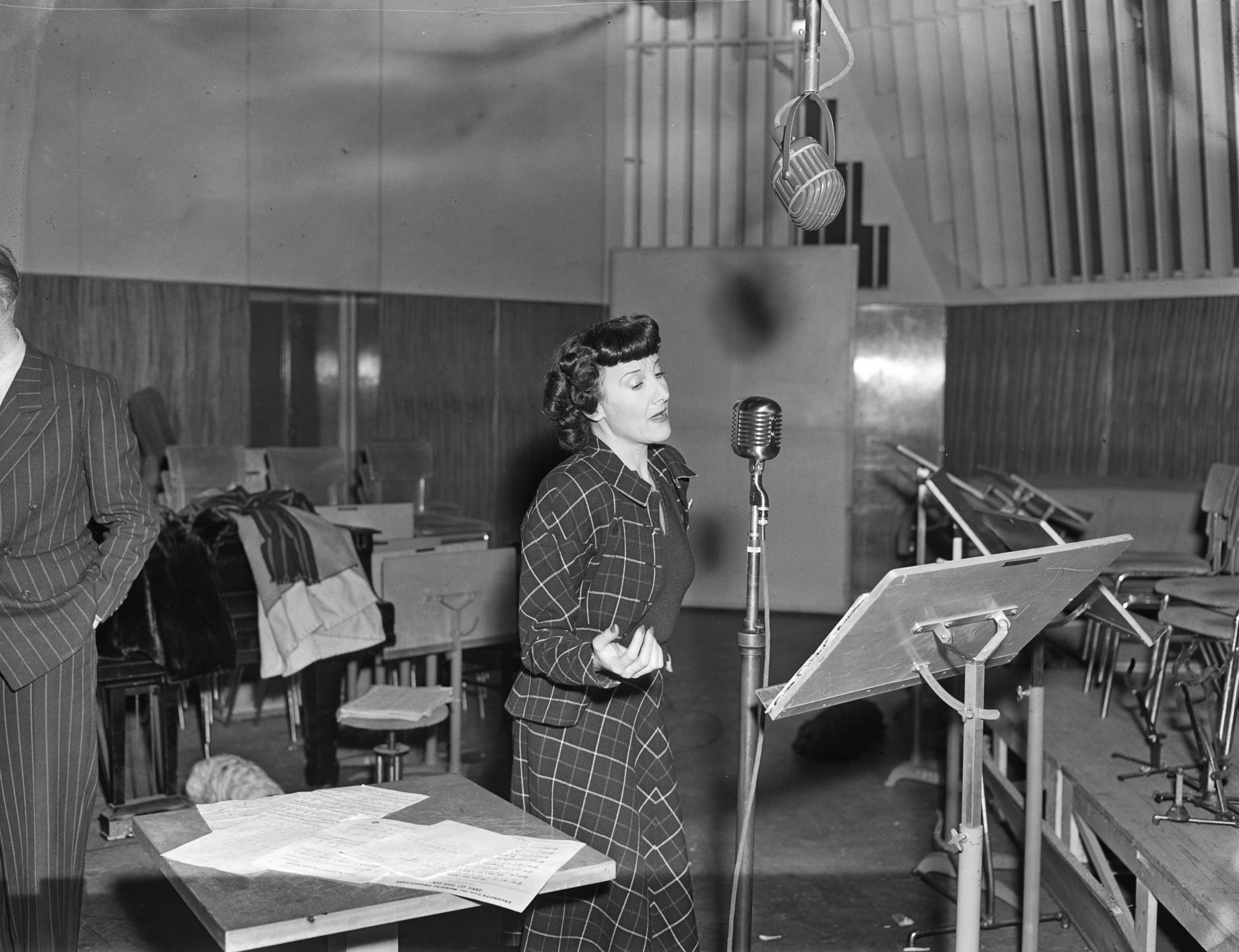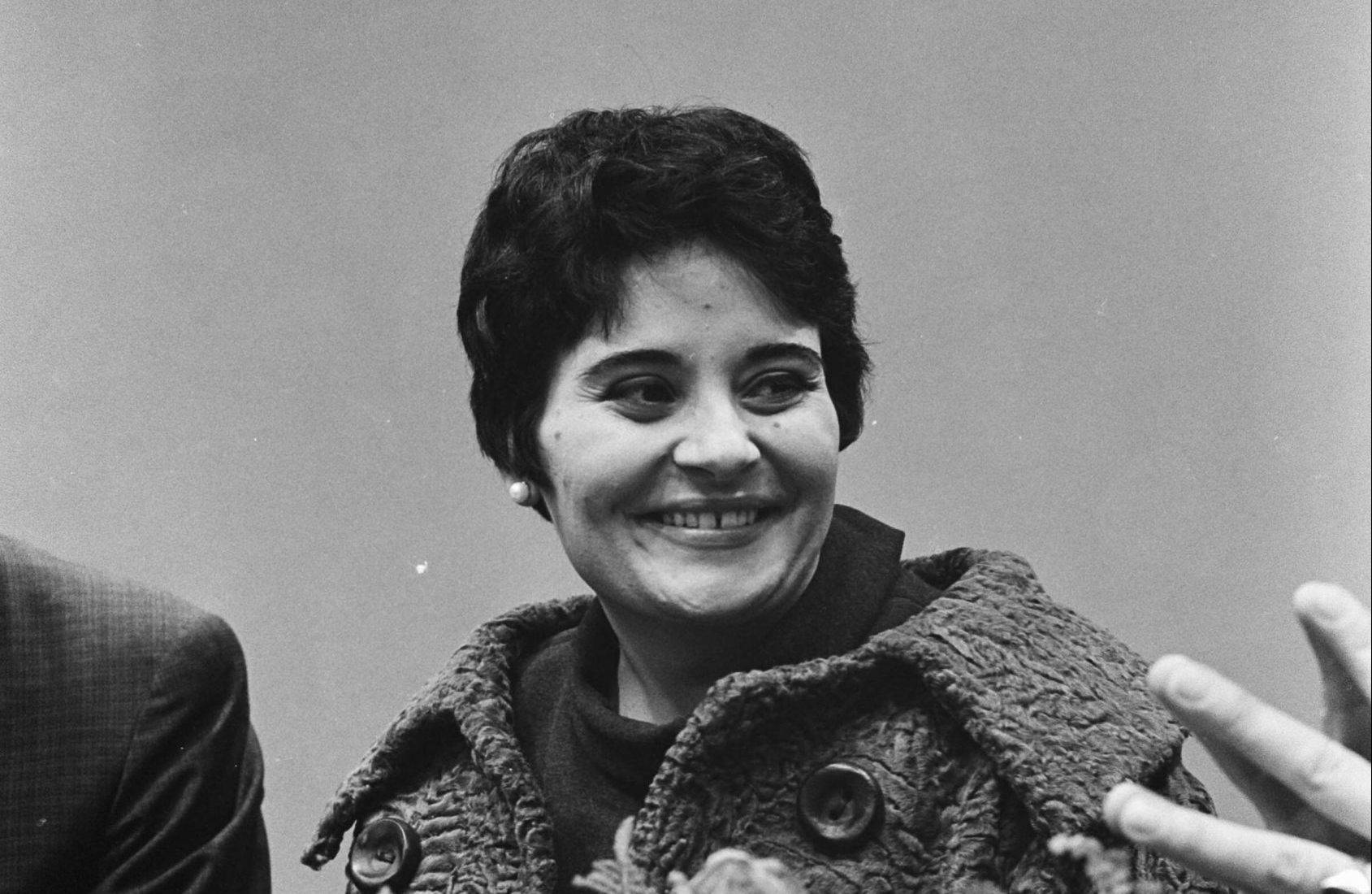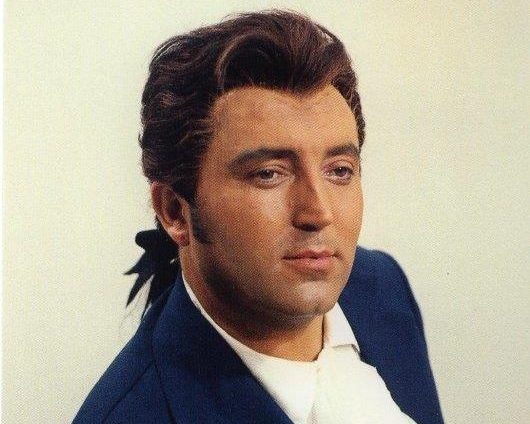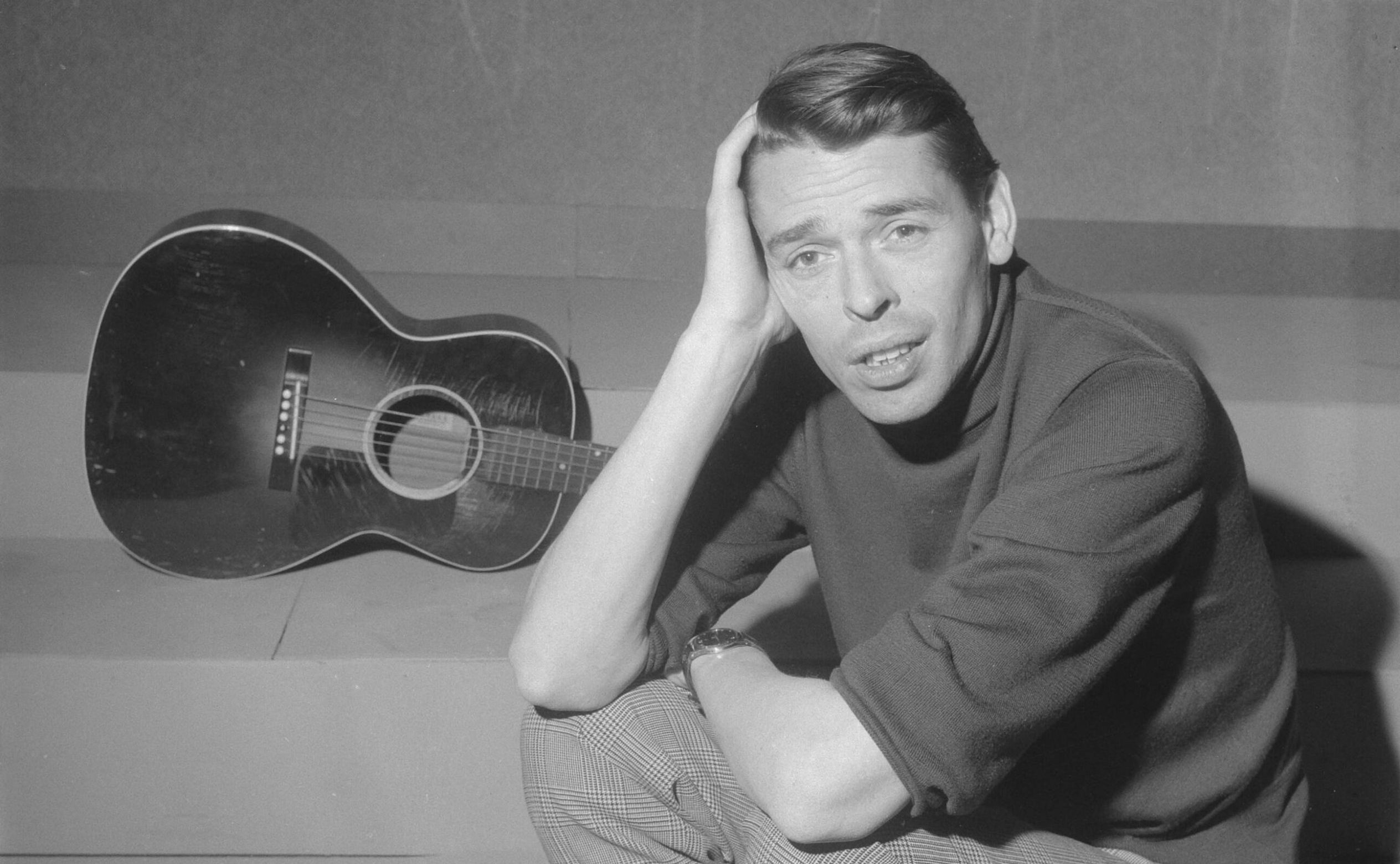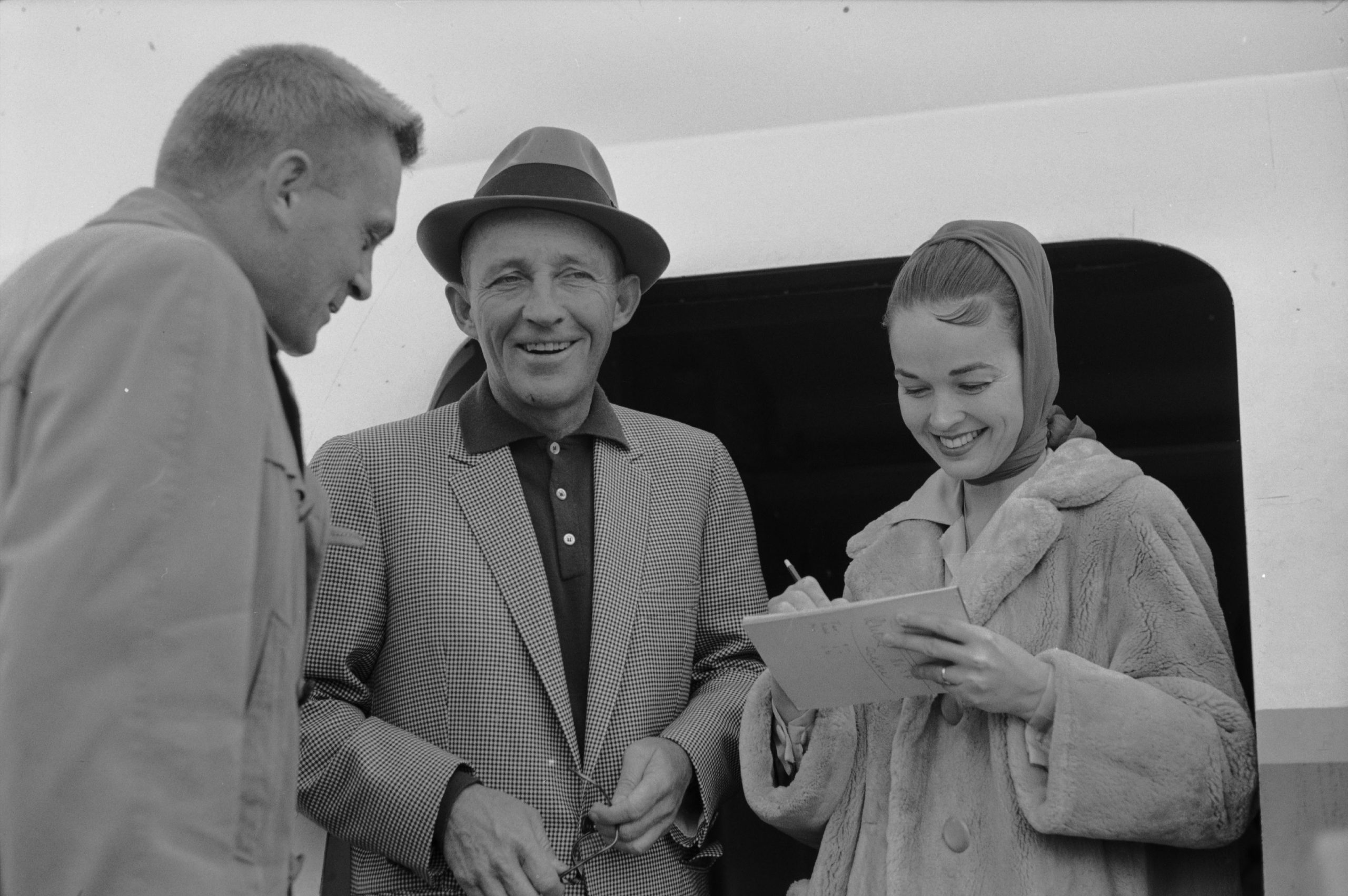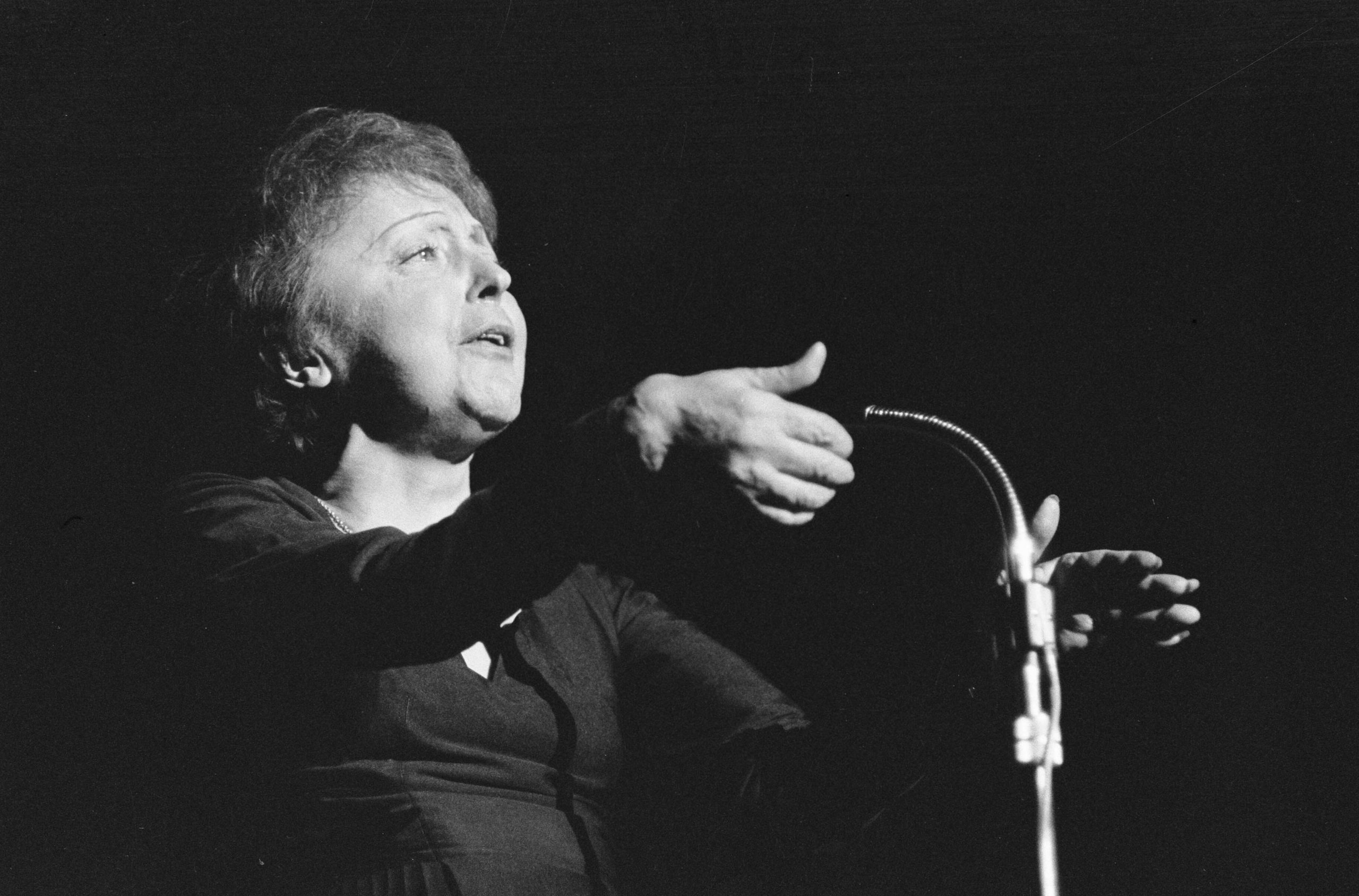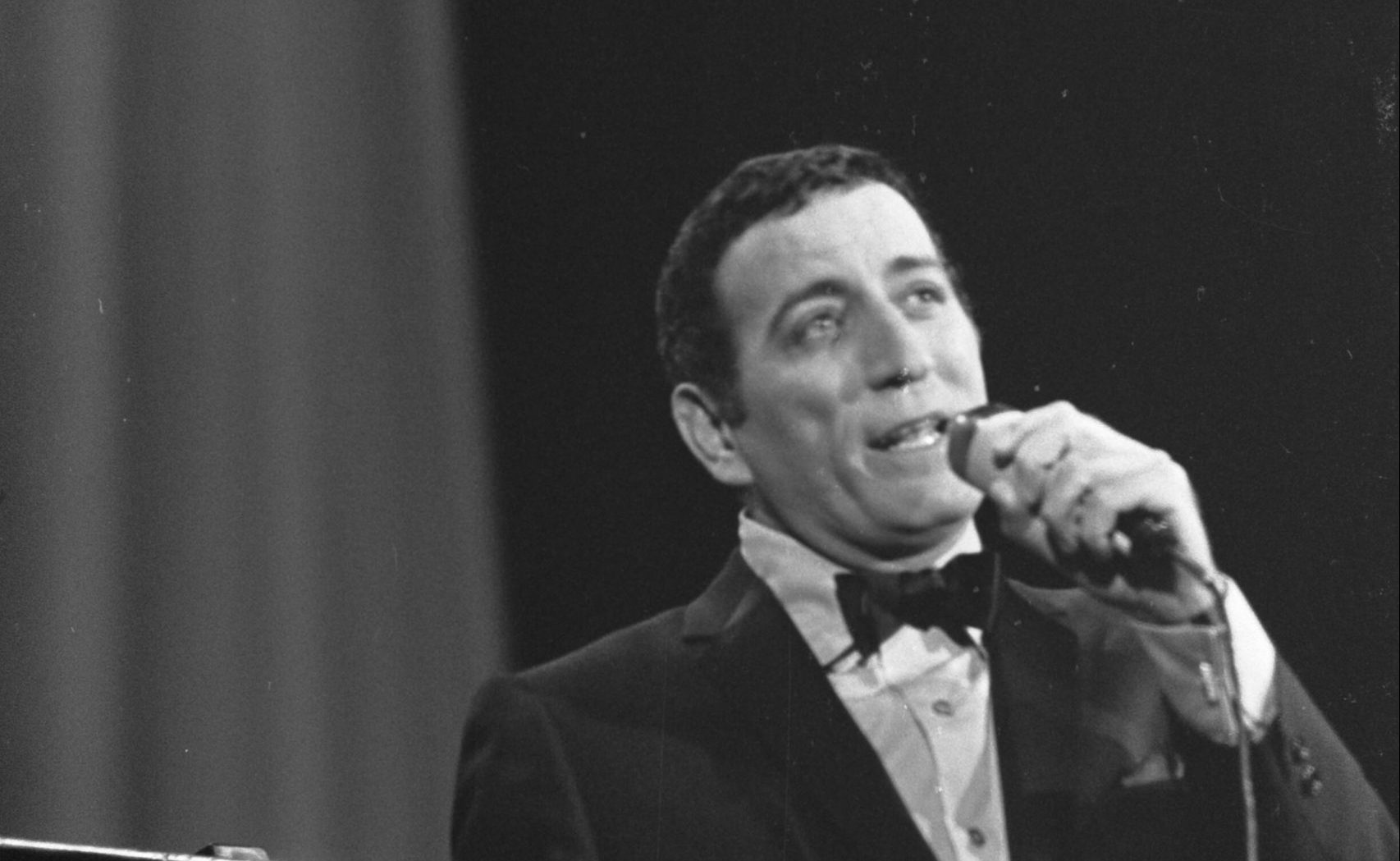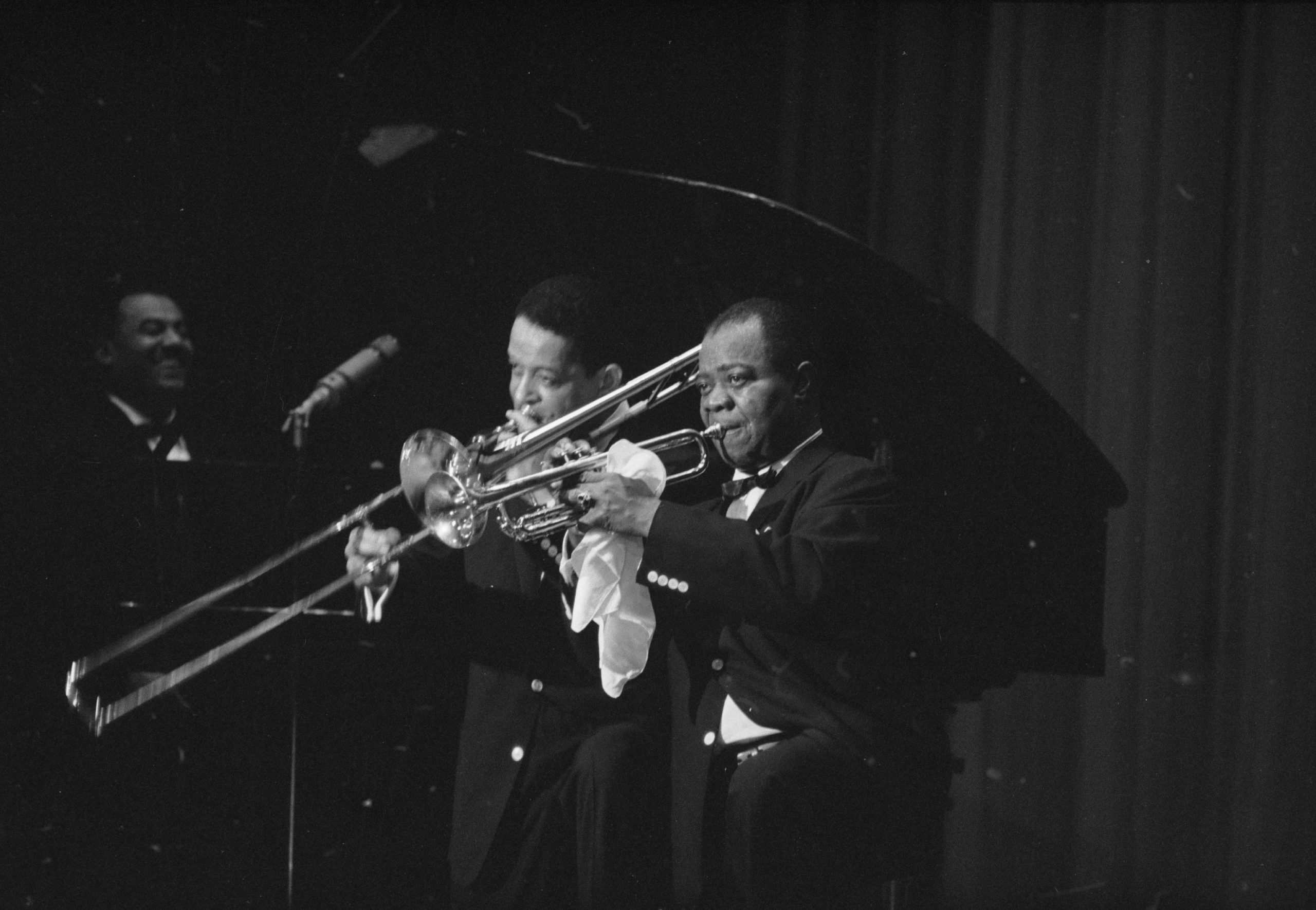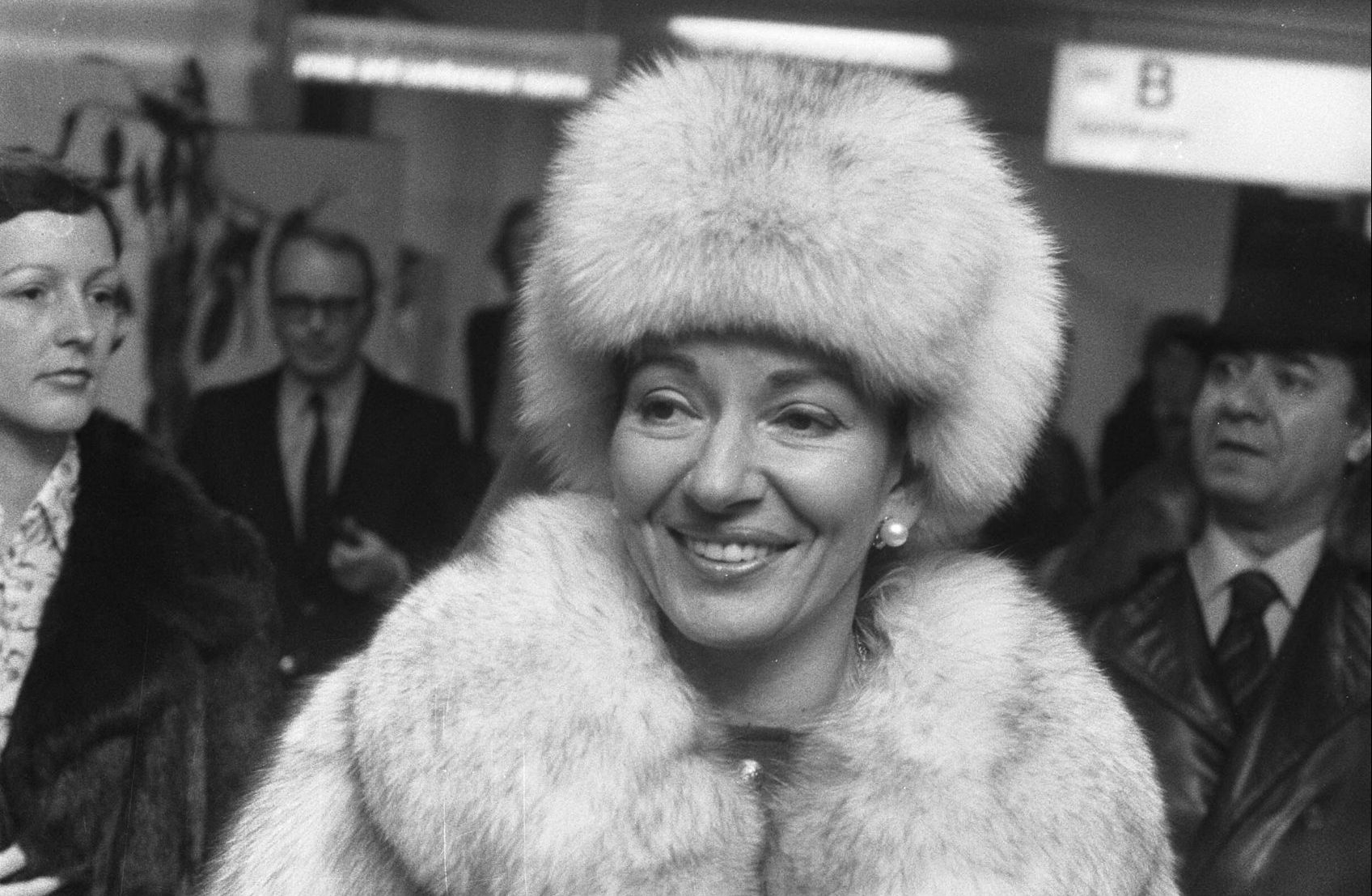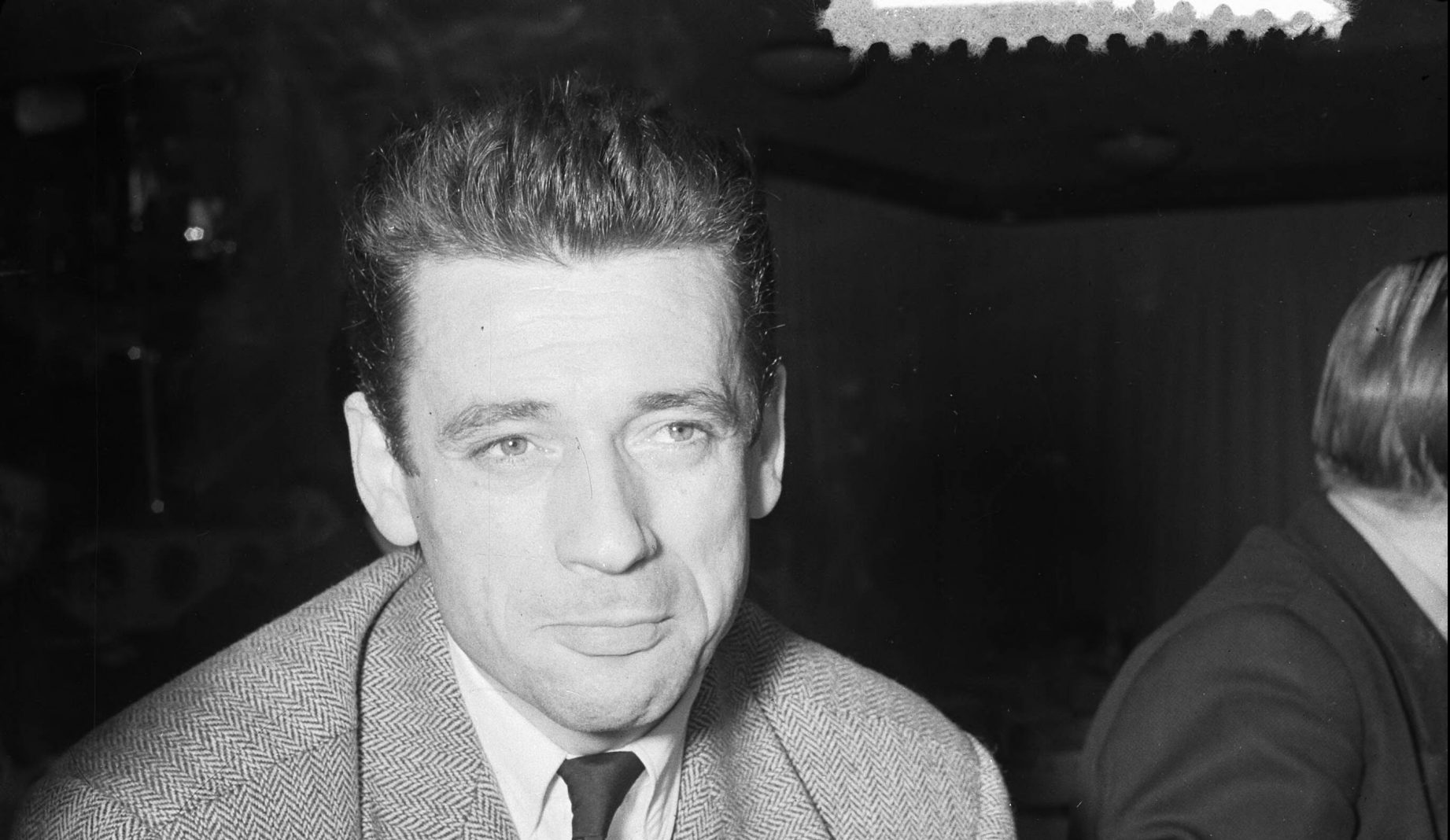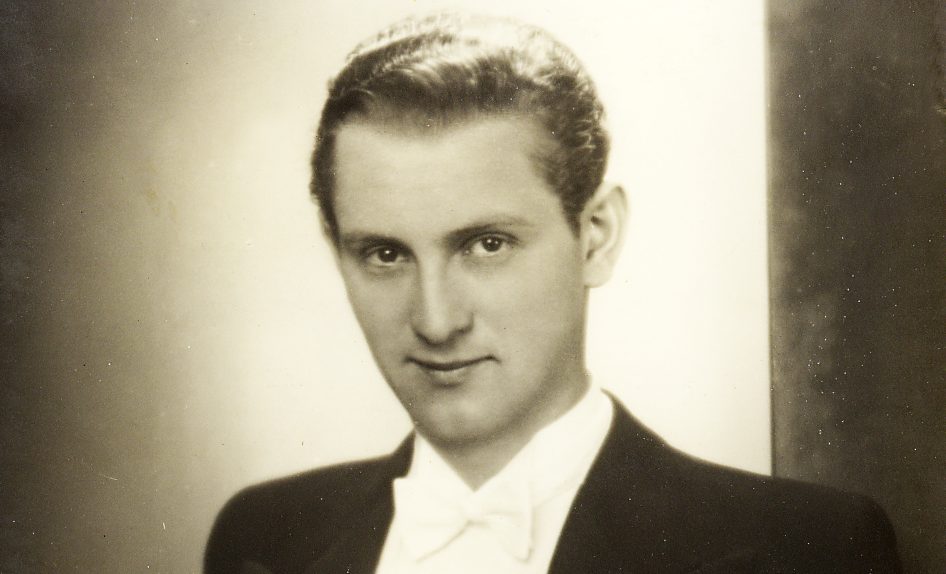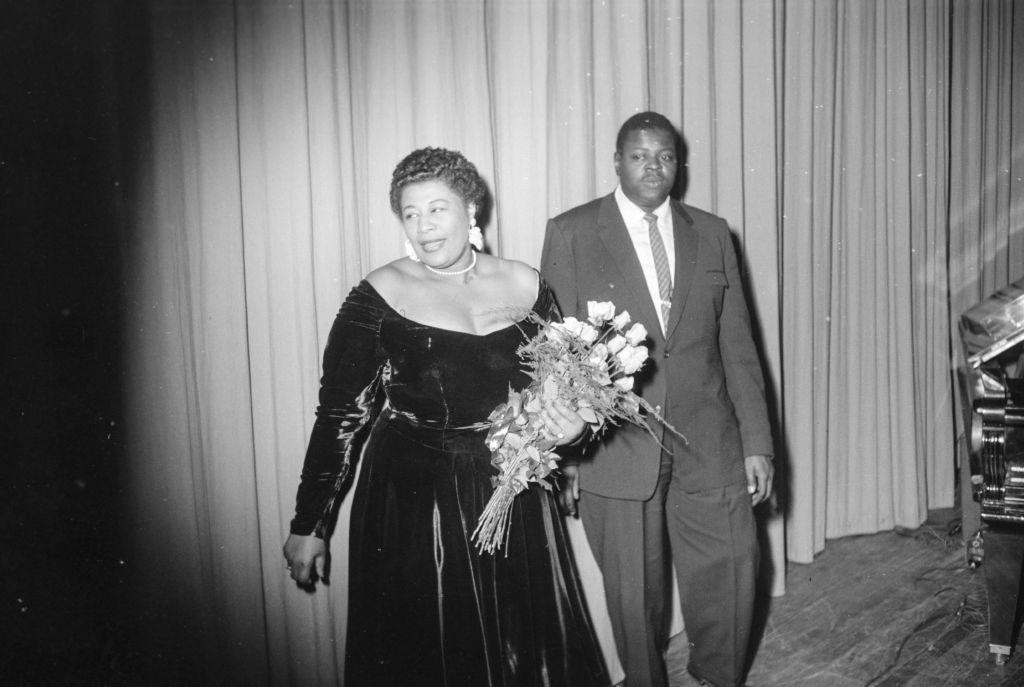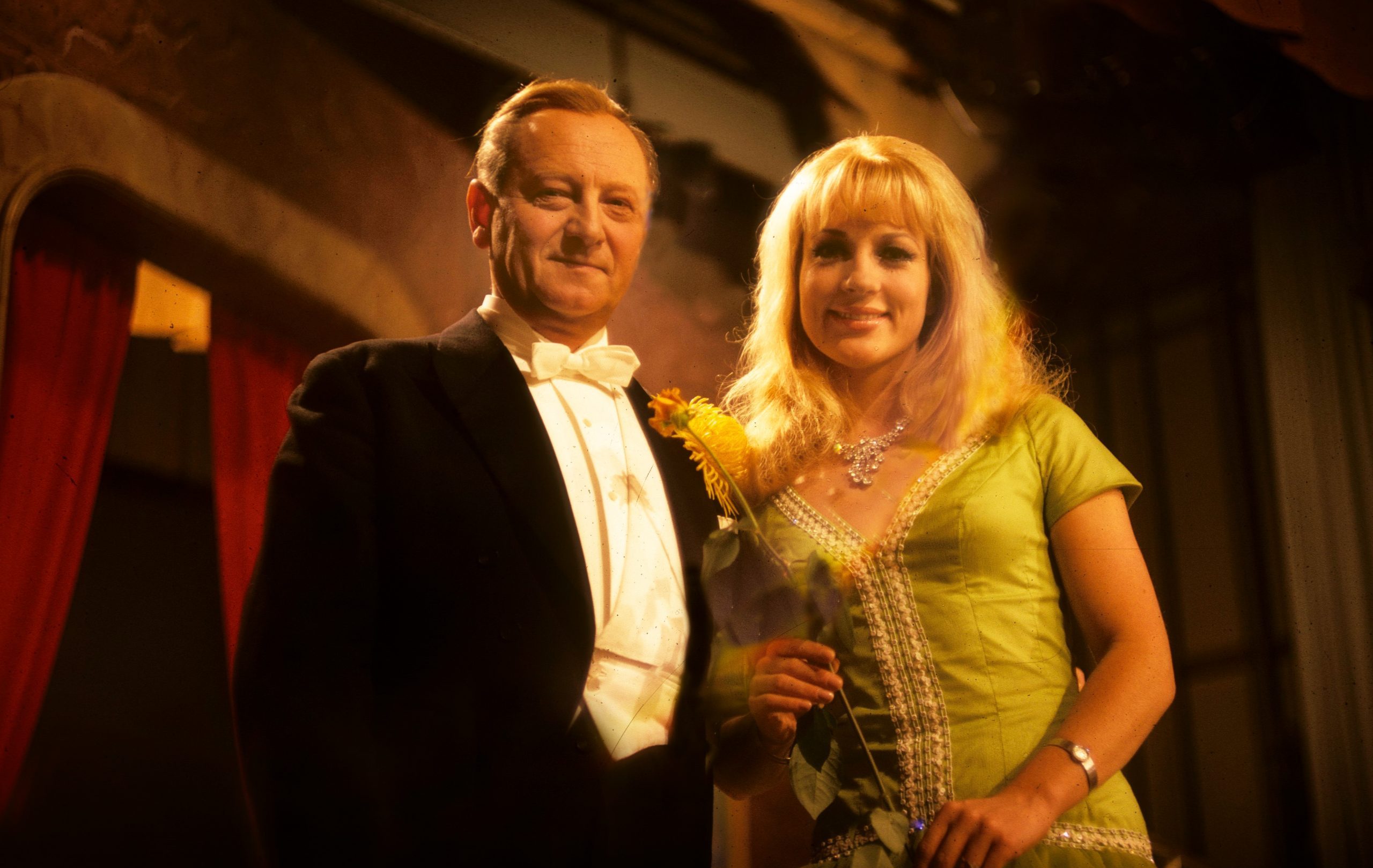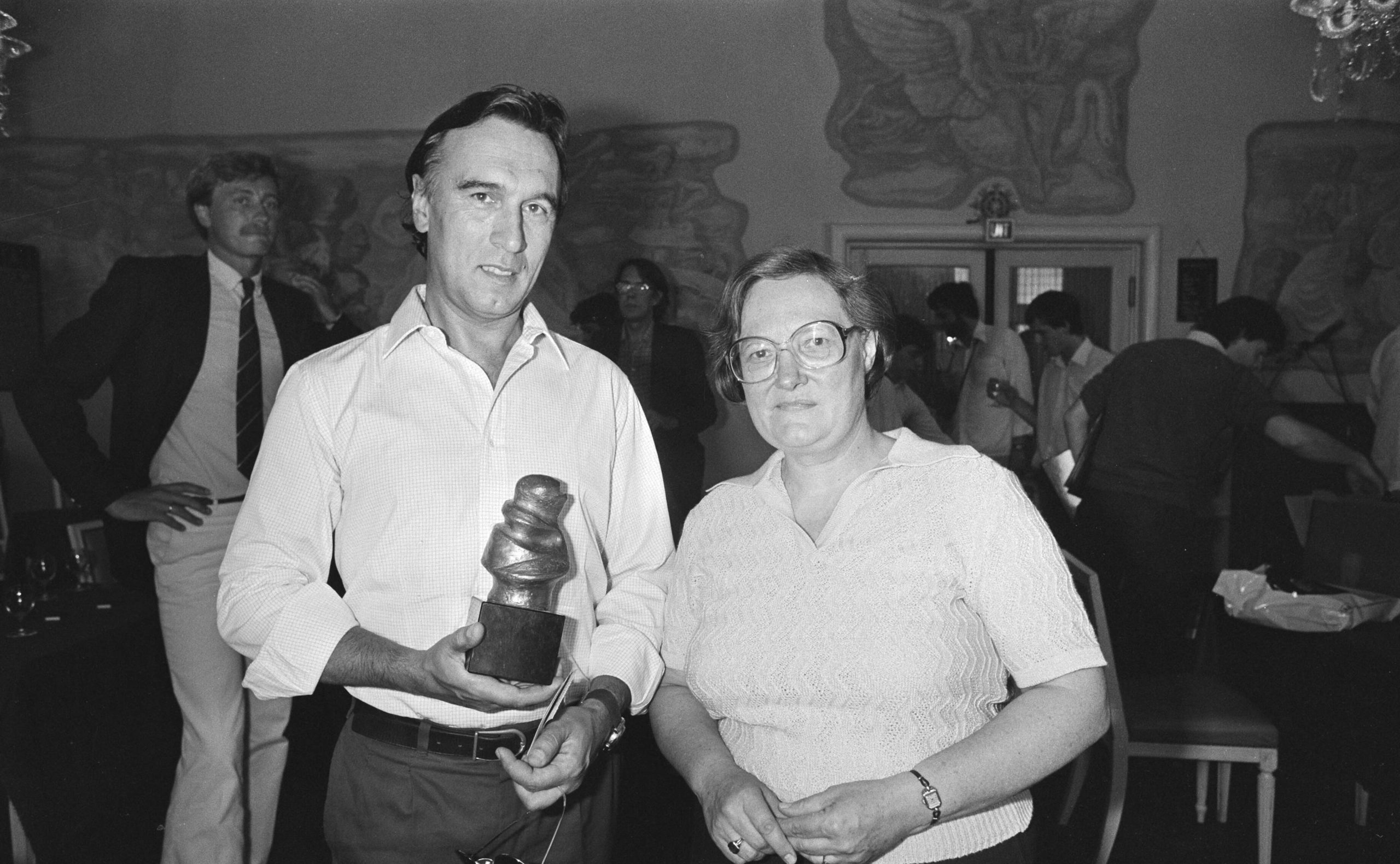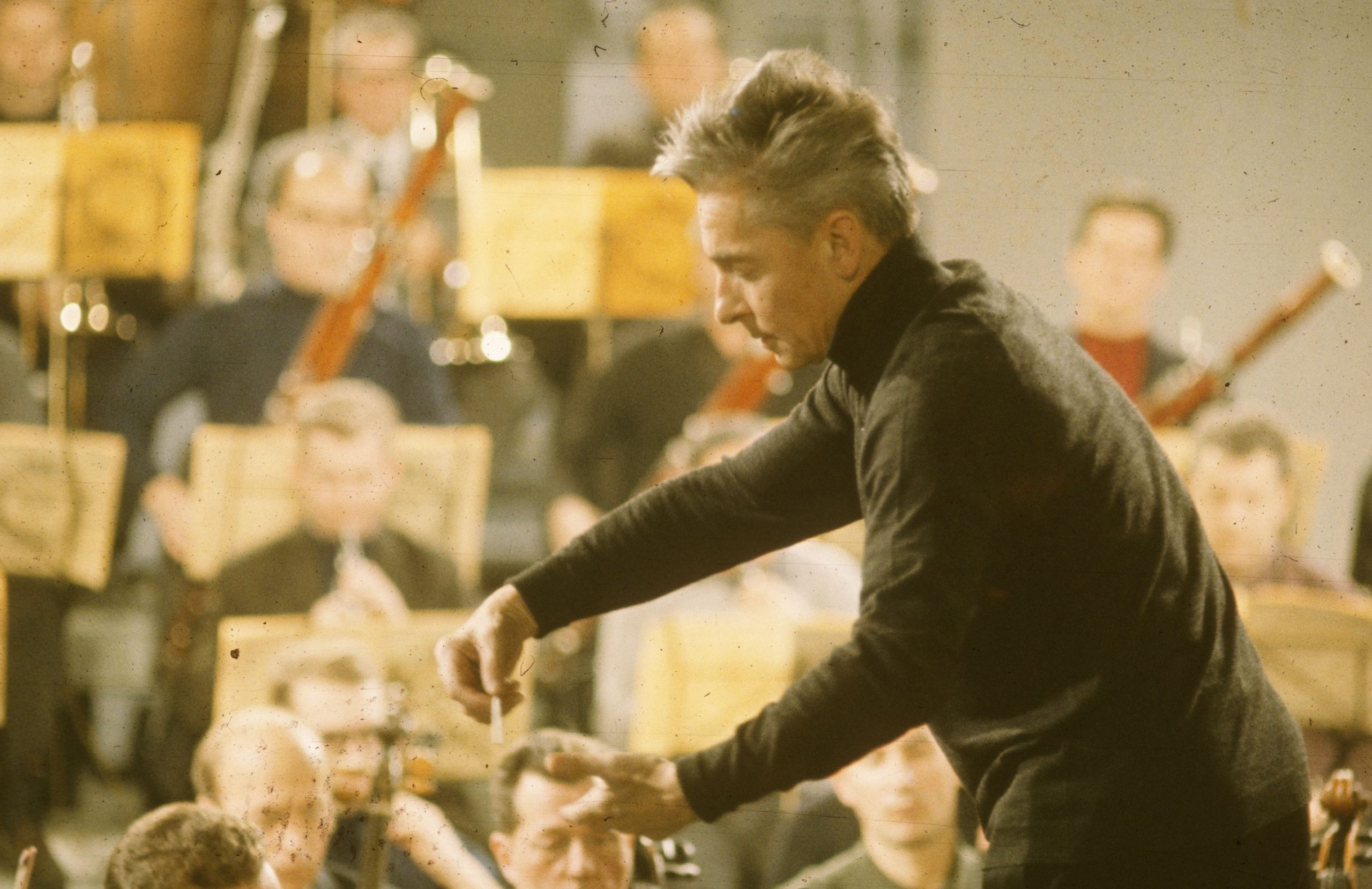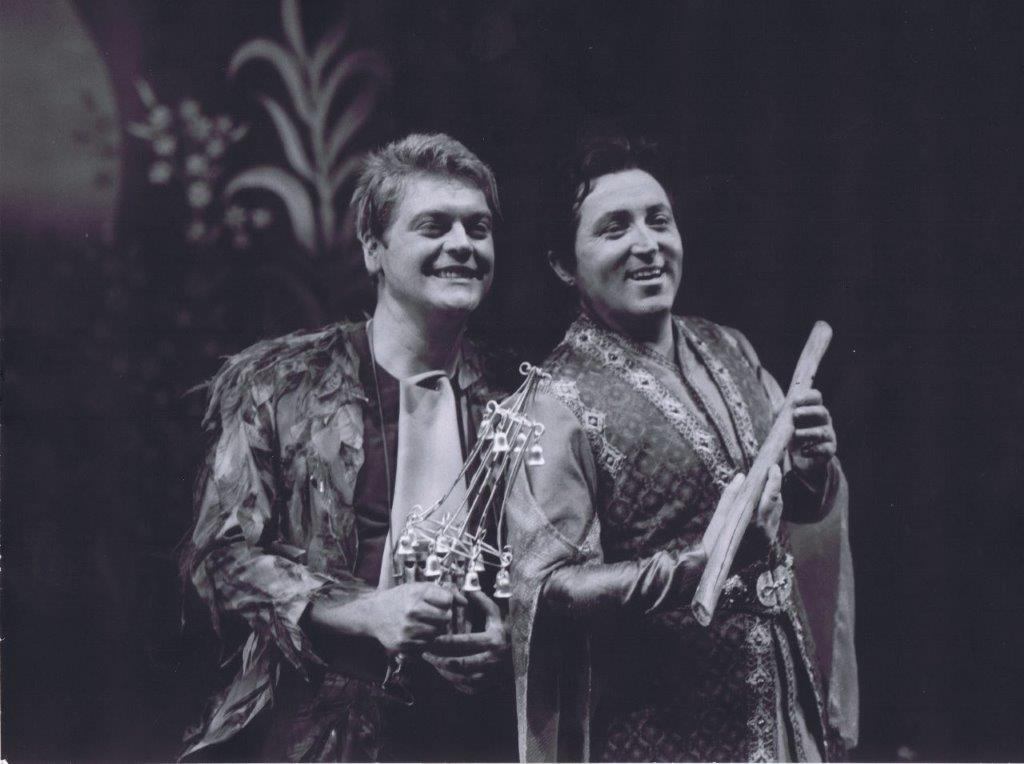“Leonard Bernstein, Sir Georg Solti, Herbert von Karajan and Seiji Ozawa sit together and discuss who of the four is the greatest conductor. Ozawa argues that he not only has the Boston Symphony Orchestra, which is an absolutely outstanding orchestra, but that he is something of a trademark in Japan. Nikon, Honda, Ozawa – that’s probably on a par in popularity. Solti replies that he has even been ennobled for his musical merits, and that he conducts the best orchestra in the world in Chicago, according to Stravinsky. Bernstein smiles in victory: he is equally important as a conductor and composer. And even the good Lord himself had asked him to compose his Mass. Karajan then looks him over and replies sharply: ‘I didn’t do that!’“
This joke describes the musical status Karajan enjoyed in the music world for decades: Even if Karajan was against such stylization of himself, the claim that characterizes Karajan as a “musical god” carries a grain of truth.
On October 22, 1938, a music review in the B.Z. am Mittag stated:
“It’s not possible to classify Herbert von Karajan in common terms. He is neither a rhythmist nor specialized in sound, neither a typical opera conductor nor a symphonic composer. He is everything at once. (…)”
The review was entitled: “The Miracle Karajan.”
This expression angered the conductor, as he confessed almost forty years later in 1977:
“Oh no! I was not a miracle at all! At the time, this criticism got me into terrible trouble and actually only held me back.“
That criticism was preceded by his engagement at the Berlin State Opera: Heinz Tietjen, general director of the Prussian State Theater, was initially hesitant to hire the thirty-year-old Karajan. After Tietjen had witnessed his first rehearsal with Karajan at the conductor’s podium, he said to him, “So you are the great meteor…”
The von Karajan family
In an interview, von Karajan said he made nothing of his upper-class ancestry: his family emigrated from Macedonia in 1767, first to Vienna and then to Chemnitz. There, his great-great-grandfather built up a textile company with his brother: Due to their great success, both were elevated to hereditary German imperial nobility in 1792.
Karajan’s great-grandfather was elevated to hereditary Austrian knighthood in 1869. However, this title lapsed in 1919 when the Austrian nobility was abolished: Thus the name suffix von remained from the German nobilitiation, to which von Karajan always attached great importance.
Despite this background, which had quite little to do with music, Karajan could only embrace music, as he himself once put it.
Study of technology
Nevertheless, Karajan initially studied engineering for three and a half semesters – during these studies, however, it was confirmed that he was drawn more to conducting than to engineering.
Nevertheless, von Karajan remained enthusiastic about technology throughout his life: he was interested in airplanes and especially automobiles. It was no coincidence that the famous von Karajan racing cars were built: With these cars, the conductor pursued the second great passion of his life.
Germany’s youngest general music director
In 1935, Herbert von Karajan was appointed Germany’s youngest general music director in Aachen at the age of 27.
Until 1945 followed a period during which Karajan conducted at various music houses in Germany and Austria.
Starting in 1939, Karajan conducted the Berlin State Opera: due to a conflict with the chief conductor of the Berlin Philharmonic, Wilhelm Furtwängler, Karajan very rarely conducted the Philharmonic before 1953.
Instead, he performed concerts with the opera orchestra under the name Preußische Staatskapelle [Prussian State Band] during the years of World War II.
The General Music Director of Europe
When Wilhelm Furtwängler, great role model for Karajan and at the same time his greatest rival, died in 1954, new opportunities opened up for Herbert von Karajan: On April 25, 1956, Karajan signed a contract with the Berlin Philharmonic: he had been chosen as Furtwängler’s successor – lifelong.
But it was not the only engagement Karajan was offered: He was appointed Artistic Director of the Salzburg Festival and Artistic Director of the Vienna State Opera almost at the same time. On top of that came a contract with La Scala in Milan.
The impetus for the contract with La Scala was a guest performance by the Milan Opera House in Vienna with a production of Lucia di Lammermoor (Gaetano Donizetti) on June 12, 1956: the leading role was played by Maria Callas.
Herbert von Karajan’s occupations throughout Europe led to him being christened the “General Music Director of Europe”.
Looking back on this period, von Karajan later said in an interview:
“Where are the essential values? You see, I came to the conclusion at that time that what matters is not how many cities you conduct in with how many different orchestras, but what you get out of it. It’s also about converting myself as a person. It is also important that the inner preparation has become much more essential to me than the actual performance, with however many different orchestras.
I once said, I have a Mohammedan soul, I can do it with five women. But today I would say it’s not possible after all.”
If one looks at von Karajan on one of the album sleeves of his numerous recordings in which he stands at the conductor’s podium, one immediately notices: He conducted without a score and usually with his eyes closed. On this, Karajan said in a 1977 interview:
“I completely shut myself off as a performer. I am the ear that recognizes the mistakes and corrects them [sic] (…) One comes to a different internalization when one closes one’s eyes. I don’t see someone wiping the sweat from their forehead or scratching their nose, I just hear the music.”
Main sources: An interview with von Karajan on YouTube (all quotes except the last one are from this interview), the book “‘Ich war kein Wunder!’/Herbert von Karajan – Legende und Wirklichkeit” von Karl Löbl, 2014 Seifert Verlag (among other quotes the joke at the beginning of the article is from this book) and another interview with von Karajan on YouTube from 1977 (the last quote is from this interview).
Cover picture: Herbert von Karajan, ca. 1975
Picture credit: ETH-Bibliothek Zürich, Bildarchiv / Photographer: Comet Photo AG (Zürich) / Com_LC0027-001 / CC BY-SA 4.0

 Deutsch
Deutsch